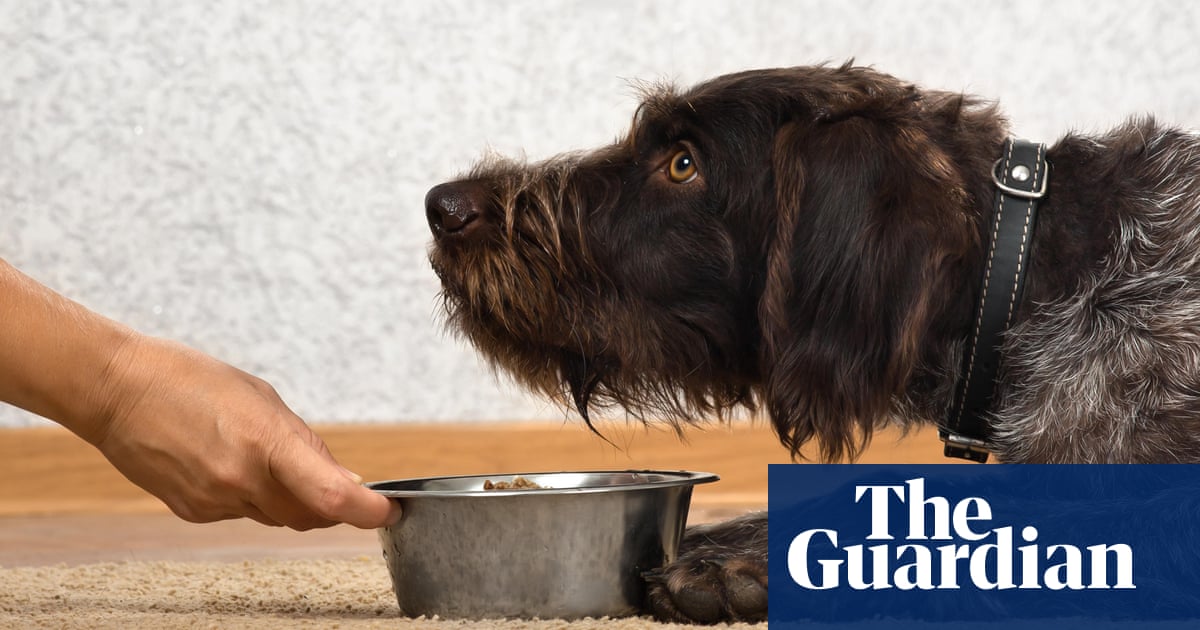Wellness for dogs: why your pet needs vaccines but not reiki and raw meat – The Guardian
Some of what is on sale is total bunkum. Some is an easy way to spoil your pooch. And some is slightly more complicated …
Last modified on Fri 24 Dec 2021 02.38 GMT
Have you been sold a pup?
An increase in pet ownership through the pandemic means there are more than a million extra dogs in Australia than there were in 2019. But the fact that many people are prepared to spend big on their pets has also brought out the snake oil salespeople.
You can buy healing crystals for your collie, homeopathic junk for your jack russell, and reiki for your Rhodesian ridgeback. The anti-vaxxers have also entered the kennel.
Then there are the purveyors of “natural” diets, vegan lifestyles or raw food; of massage and acupuncture and gourmet human-grade meals that cost as much as … gourmet human-grade meals.
Some of what is on sale and promising wellness is total bunkum. Some is an easy way to part you from your cash and spoil your pooch. And some, such as the food, is slightly more complicated.
Research from Animal Medicines Australia found the number of pet-owning households went up from 61% before Covid struck to 69% in May 2021. That includes more than a million “new” dogs.
The report, Pets and the Pandemic, also found there is a lot of money at play. The average dog costs about $3,237 a year, with $58 of that spent on alternative health treatments, including acupuncture and massage.
Nationally that equates to $20.5bn a year, with about $270m on alternative treatments.
David Neck, a spokesperson for the Australian Veterinary Association, has been a veterinary surgeon for about 30 years. He says he has seen people lured in by false promises and warns that the market is “ripe” for those pushing unproven treatments and diets.
“People believe things they read on the internet,” he says. “We have people who become instant experts in the field – they’re passing on their opinions.”
Some dog breeders dig up online information that can be entirely wrong, he says, and hand it over as a guide for new owners.
Neck says a breeder may have been breeding five dogs a month for years – for vets, five dogs is a morning’s work.
A surprising number of websites offer crystals for dogs, spruiking a wide range of entirely unproven claims. If there is no evidence crystals work for Homo sapiens, why would they work for Canis lupus familiaris? Sure, they’re pretty. Humans might find them calming. A dog would, paws down, prefer a stick.
Homeopathic products abound as well. Again, there is no evidence homeopathy works. At all. It’s not an “alternative” to anything. It’s mostly, and sometimes exclusively, water. Water is important, just don’t pay for it – fill the dog bowl from the tap.
As for reiki, a roundup of studies found no evidence such “therapeutic touch” works. As with many complementary therapies, it may help humans feel better – but there’s no reason to think it would be better for a dog than a tummy rub. There are even people recommending “distance reiki” – basically sending healing thoughts.
Neck says vaccinations and diets are more common and much more complicated issues for vets.
Like humans, dogs need vaccines to protect against disease. And, as in the human world, some people have fallen prey to misinformation and conspiracy theories about vaccinations for dogs.
In one sense, it’s simple. Vaccinations are proven, safe and effective, and side-effects are rare.
But there’s a complication in the dog world – some vaccines given yearly may protect for longer than that but they are not approved to be given, say, every three years. So a dog will be considered unvaccinated after one year, unless it has a blood test, known as a titer test, that shows it is still immune.
“But taking blood from a dog is done by plunging a needle into the jugular vein,” Neck says. “I’m not sure as a dog I’d like to have that done rather than a little needle.”
So many vets will give the one-yearly injection even if the dog may still be immune. Some anti-vaxxers have latched on to this and spread misinformation about “vaccine overload”.
The idea of vaccine overload is “questionable”, Neck says, and any concerns about adverse events are something people can talk to their vet about. The vet will also be able to say if the deadly parvovirus is in the area, for example, making vaccination more urgent.
There are myriad places that advertise “alternatives” to vaccination – largely diet-based – but there is no evidence any of them work.
With all the wellness palaver come, of course, diets. All sorts of them. Seafood and insect-based diets are being marketed as sustainable options for dogs.
There are also vegan diets, which can be hard to get right and may be catastrophic if done badly.
The biggest food trend for dogs is “raw”, which can cover fresh, freeze-dried, dehydrated, homemade or store-bought. Raw food usually has a high ratio of meat, bones and offal to vegetables, and is often marketed as “grain-free”. Producers spruik green tripe and animal penises, fat and edible bones.
Raw food diets sometimes incorporate a fasting day (good luck with that).
Proponents of raw food say it can do everything from giving your dog better skin and hair to better reproductive power and reduced body odour. It’s touted as more “natural”. But there is no evidence it’s any better than commercial or homemade cooked food, according to the World Small Animal Veterinary Association.
Neck says if a patient comes through his door there is no way to tell whether it eats a raw or cooked diet.
“I cannot measure anything on the patient … it doesn’t change anything in a measurable way,” he says. “Raw food will always run the risk of parasites and bacterial contamination.”
WSAVA also warns about those risks, and earlier this year European researchers found that all the raw dog food samples they tested had bacteria, some of it antibiotic-resistant. There was also a chance the superbugs could infect humans.
This year more than 20 dogs died and 44 were seriously sickened by contaminated pet meat. The RSPCA recommends against feeding dogs raw meat or bones.
Commercial dry dog food that complies with voluntary Australian standards is recommended by the RSPCA, although occasionally both vegan and meat-based products have been recalled because of potential links to toxins that cause the potentially fatal condition megaesophagus.
The federal government has resisted pressure for mandatory standards in the pet food industry.
Neck says if owners want to feed a raw diet, they should “make it yourself, know the quality of the ingredients and how they’re handled”.
And, he says, get to know your vet. That goes for vaccinations as well. Find a vet you trust, who will then know your dog’s history.
Anne Chester, the chief veterinarian at RSPCA Queensland, echoes that advice. “They should develop a relationship with their vet clinic and get all their advice from the local vet,” she says.
“With all things, it’s buyer beware, there’s an awful lot of information out there on the internet which is not always from reputable sources.”
And Chester warns about household foods that are dangerous for doggos, with a specific Christmas warning – ham.
“People need to be really careful about feeding dogs the fat off the ham. It can cause [life-threatening] pancreatitis.”
In fact, be careful around any stray food this Christmas in case your beloved dog just wolfs it down.



